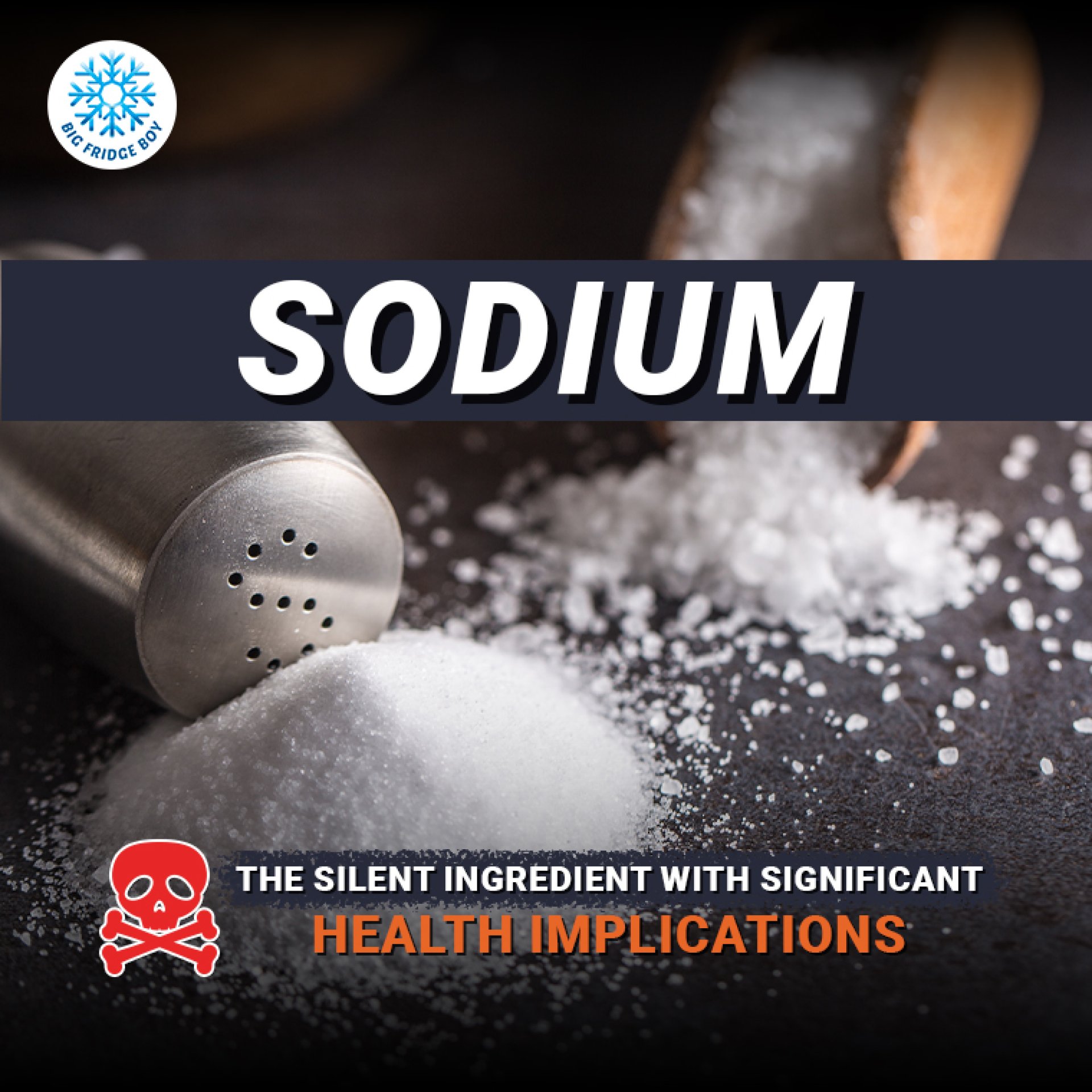"Unmasking Sodium: The Silent Ingredient with Significant Health Implications"

Many people are unwittingly consuming more sodium than is suggested. This is because sodium may be found in practically every processed meal. It's more than merely flavoring meals. Is an important component that influences our health. Although sodium is an essential component for many body activities, too much of it can cause a variety of health issues.
What is sodium?
Sodium is a chemical element with the symbol Na and atomic number 11. It's a soft, silvery-white, highly reactive metal. In the context of nutrition, we mostly encounter it in the form of sodium chloride, commonly known as table salt. It's found naturally in many foods, but it's also added to many processed foods to enhance flavor and preserve freshness.
The American Heart Association recommends aiming for a dietary sodium intake of no more than 2,300 mg per day (which is about one teaspoon of salt), and ideally, no more than 1,500 mg for most adults.
What does sodium do in our body?
In our body, sodium plays several essential roles:
- It helps maintain fluid balance by retaining water, which helps maintain blood volume.
- It's crucial for nerve function, allowing nerves to send and receive electrical signals.
- It plays a role in muscle contraction and relaxation.
- It aids in nutrient absorption and transport.
What if we eat very little sodium?
Sodium is an essential mineral, which means your body can't produce it, and you must get it from your diet. A sodium deficiency can lead to symptoms such as headache, nausea and vomiting, fatigue, muscle spasms, seizures, and in severe cases, coma or death. However, sodium deficiency is rare in most developed countries because it's commonly found in many foods.
What if we eat too much sodium?
Overconsumption of sodium, especially over a prolonged period, can lead to several health problems, including:
- High blood pressure: Excess sodium can make your body hold onto more water, increasing the volume of your blood and thereby raising your blood pressure.
- Heart disease: High blood pressure is a risk factor for heart disease.
- Stroke: High blood pressure can lead to damage in your blood vessels, increasing the risk of a stroke.
- Kidney damage: The kidneys filter out excess sodium, but too much can put a strain on the kidneys and potentially lead to kidney disease.
Is sodium good or bad?
Sodium is neither inherently good nor bad. It's a necessary mineral that our bodies need to function correctly. It plays vital roles in nerve and muscle function, maintaining fluid balance, and controlling your body's blood volume and blood pressure.
However, too much sodium can contribute to high blood pressure, heart disease, and stroke, especially for people who are sodium sensitive. The problem with sodium is not its presence in our diet but typically its overconsumption.
Why does sodium make you look fatter?
Sodium itself doesn't cause weight gain or fat accumulation. However, high sodium intake can lead to water retention. Your body likes to keep a balance of sodium in the water, so when you consume more sodium, your body holds onto extra water to balance it out. This water retention can cause bloating and puffiness, which might make you look heavier or "fatter."
Why does sodium make you thirstier?
The reason higher sodium intake can make you feel thirstier is due to how your body maintains its fluid balance. Sodium is an electrolyte that helps regulate the amount of water that's in and around your cells.
When you consume sodium, it's absorbed into your bloodstream and pulls water into your blood vessels to dilute it. This increases the volume of your blood, which your body recognizes as an increase in blood pressure.
To lower this pressure, your kidneys filter out some of the excess sodium into your urine. However, the kidneys need water to do this effectively. So, your body sends a signal to your brain to make you feel thirsty, prompting you to drink and provide the necessary water for your kidneys to dilute the sodium and remove it from your body.
Recognizing sodium's different names
Various forms of sodium serve different roles in food processing and preparation, often as preservatives, flavor enhancers, or stabilizers.
- Sodium Chloride: Also known as table salt, used as a flavor enhancer in many foods.
- Monosodium Glutamate (MSG): A flavor enhancer used in a variety of cuisines and food products.
- Sodium Bicarbonate: Known as baking soda, it's used as a leavening agent in baking and to neutralize acidity in certain foods.
- Sodium Nitrate/Nitrite: Used as preservatives and color fixatives in cured meats like ham and hot dogs.
- Sodium Benzoate: Used as a preservative to inhibit the growth of microbes in acidic foods.
- Sodium Alginate: Used as a stabilizer, thickener, and emulsifier in foods like ice cream and yogurt.
- Sodium Citrate: Used as a flavor or pH buffering agent, or to keep a texture smooth in foods like ice cream and cheese.
- Sodium Sulfite: Used as a preservative to prevent discoloration in foods like dried fruits and wine.
- Sodium Ascorbate: A form of Vitamin C used as an antioxidant in processed foods to prevent spoilage.
- Sodium Saccharin: A non-caloric artificial sweetener that is hundreds of times sweeter than sugar.
In conclusion, the importance of monitoring our daily sodium intake cannot be overstated. While sodium is an essential nutrient that our bodies require to function properly, an excess can lead to serious health consequences such as high blood pressure, heart disease, kidney damage, and even an increased risk of certain types of cancer. Much of the sodium we consume comes hidden in processed and restaurant foods, making it easy to surpass recommended limits. Therefore, it's critical to be mindful of our dietary choices and check food labels. By doing so, we can better manage our sodium intake, thereby safeguarding our health and supporting our bodies to function optimally.



